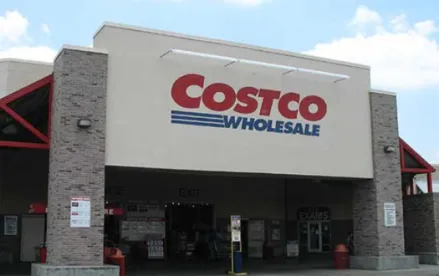Price discrimination under the Robinson-Patman Act (RPA) involves charging different prices to competing buyers for the same product. This was the key issue recently before the Ninth Circuit in U.S. Wholesale Outlet & Distrib. v. Inno. Ventures, LLC1. In its 20 July 2023 opinion, the Ninth Circuit reversed the district court’s determination that U.S. Wholesale Outlet & Distribution, Inc. (U.S. Wholesale) and Costco Wholesale Corporation (Costco) were at different functional levels of sale and, thus, Living Essentials, LLC’s (Living Essential) favorable pricing to Costco could not violate the RPA. It is undisputed that U.S. Wholesale is a wholesaler, as it sells to dealers, which in turn sell to end-user consumers. Costco argued (and the district court agreed), however, that it was a dealer, meaning it was not operating at the same level of competition as U.S. Wholesale, a critical element of the RPA analysis. The Ninth Circuit did not come to the same conclusion.
The Ninth Circuit found that Costco could also compete with traditional wholesalers because of its Costco Business Centers, which target sales to dealers. The Ninth Circuit Court concluded that not only did Costco compete at the dealer level (traditional Costco stores), it operated at the wholesale level as well (Costco Business Centers). Many manufacturers fail to recognize that if they sell to a reseller who competes at two-levels of distribution (here, Costco), the manufactures may be inadvertently creating multi-level price discrimination liability under the RPA. That single sale to a multi-level reseller will trigger an RPA evaluation at both the wholesale and dealer/direct-to-consumer levels (DTC).
Notably, the Ninth Circuit also affirmed a jury instruction that effectively raised the requirements of what manufacturers must show to justify the functional price discounts offered to their dealers. This means that if a manufacturer offers discounts for bulk shipping or reseller services, it must ensure that the value offered nets its actual savings.
BACKGROUND
On 8 February 2018, U.S. Wholesale brought suit against Living Essentials in United States District Court for the Central District of California, alleging that Living Essentials offered it less favorable pricing, discounts, and reimbursements in violation of Sections 2(a) and 2(d) of the RPA.3
U.S. Wholesale alleged that Living Essentials made contemporaneous sales of the 5-hour Energy drink to Costco at net-lower prices than offered to U.S. Wholesale. Living Essentials allegedly offered Costco better prices and rebate promotions to compensate for marketing and promotional functions, as well as more favorable discounts and reimbursements.
Following trial, the jury returned a verdict for Living Essentials on the Section 2(a) claim. The district court then denied U.S. Wholesale’s request for injunctive relief under Section 2(d), reasoning that jury found no competition existed between U.S. Wholesale and Costco, and the district court was bound by that finding. In addition, the district court concluded, based on its own independent review of the evidence, that U.S. Wholesale had “failed to prove by a preponderance of the evidence that they competed with Costco for resale” of 5-hour Energy.4
U.S. Wholesale appealed various jury instructions issued by the district court with respect to its Section 2(a) claim, as well as the district court’s denial of injunctive relief under Section 2(d).
ANALYSIS
RPA Section 2(d) - Functional Levels
The district court denied U.S. Wholesale’s request for injunctive relief under Section 2(d) because it found that “no competition existed” between U.S. Wholesale and Costco.5 Critically, the Ninth Circuit reversed and remanded the district court’s determination that Costco and U.S. Wholesale operated at different functional levels and, therefore, competed for different customers of 5-hour Energy.
The main issue was whether Costco and U.S. Wholesale were in competition for the same customers. The Ninth Circuit noted that to establish that “two customers are in general competition,” it is sufficient to show that: “(1) one customer has outlets in ‘geographical proximity’ to those of the other; (2) the two customers ‘purchased good of the same grade and quantity from the seller within approximately the same period of time’; and (3) the two customers are operating ‘on a particular functional level such as wholesaling or retailing.’”6 The question in this case related to the third prong: whether U.S. Wholesale and Costco were operating on the same functional level and, thus, were competing for different customers of 5-hour Energy.7
Although the district court found that Costco “was a retailer and made the vast majority of its sales to the ultimate consumer,” the Ninth Circuit pointed to the evidence that 90% of all Costco Business Centers clients were businesses, targeting mom-and-pop convenience stores and small grocery stores.8 There was no evidence presented that Costco sold 5-hour Energy to consumers, as Costco exclusively purchased 5-Hour Energy for resale at its Costco Business Centers.9 Based on this evidence, the Ninth Circuit held that, as a matter of “economic reality,” both Costco and U.S. Wholesale could have been considered wholesalers of 5-hour Energy.10
The Ninth Circuit vacated and reversed the lower court’s decision, opening up the door for U.S. Wholesale to prove the remaining factors required under the RPA case law.
RPA Section 2(a) - Price Discrimination
The jury returned a verdict for Living Essentials on the Section 2(a) claim. U.S. Wholesale challenged certain instructions issued by the district court, including the district court’s instruction relating to the functional discount defense. The functional discount defense allows a manufacturer to offer a discount to a specific reseller that is tied to services performed by the reseller in support of the manufacturer’s distribution system.
The Ninth Circuit affirmed the districts court’s jury instruction requiring that “the wholesalers had to prove that any difference in prices could not be justified as ‘functional discounts’ to compensate Costco for marketing or promotional functions.”11 Notably, within this instruction was the respective burden for Living Essentials to prove that “(1) Costco actually performed the promotional, marketing, and advertising services” it claims to perform and “(2) the amount of the discount was a reasonable reimbursement for the actual functions performed by Costco.”12
This means that the Ninth Circuit affirmed a jury instruction that requires manufacturers to attribute discounts to specific sales and service activities (e.g., marketing and promotional functions that benefit the manufacturer). For manufacturers to show that they are not discriminating between purchasers, they will have to show that the discount given to larger purchasers are actually providing value to the manufacturer that justifies the decrease in cost.
The Ninth Circuit affirmed that the “functional discount” doctrine was available to Living Essentials regardless of whether the wholesalers and Living Essentials were at the same level in the distribution chain.13
WHAT COMES NEXT?
There has clearly been a shift in the distinction between wholesalers and retailers. The Ninth Circuit held that Costco, despite holding itself out as a DTC reseller, was also in competition with wholesalers. This means that when a manufacturer develops a pricing strategy, they must take into account customers that may have hybrid business models where they do not fall into a traditional category of retailer and wholesaler.
While there is only one Costco, that is not the end of the story; many manufacturers are likely to have wholesale partners which are using their distributor margins to go to the consumer, via third party marketplaces. The bottom line is that manufacturers cannot give one sticker price to distributors which resell at multiple levels of distribution. The pricing must correspond to the specific arm of the business that the product is being resold under. The Ninth Circuit rejected this type of muddled distribution that has gone overlooked in the past. While this case focuses on Costco (which was seen traditionally as selling to end user customers) the next case in this space may focus on a traditional distributor who has taken their margin to compete as a third party marketplace reseller direct to end-users.
Manufacturers also must consider the implications that this decision may have on “functional discounts.” Although the Ninth Circuit affirmed the verdict for Living Essentials on the RPA Section 2(a) claims, the Court made it clear that manufacturers have the burden of proving that discounts are actually attributable to the distributors’ performance of sales and service activities. Manufacturers must be prepared to do the math—and show their work—for the justifications they are making with respect to pricing discounts.
This marks another plaintiff-friendly decision with respect to the RPA. Manufacturers across the country may begin to re-evaluate their risk in engaging in volume-based pricing strategies given the momentum building for these types of claims.







 />i
/>i

